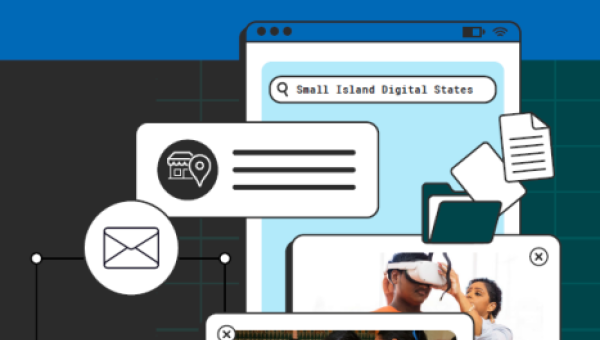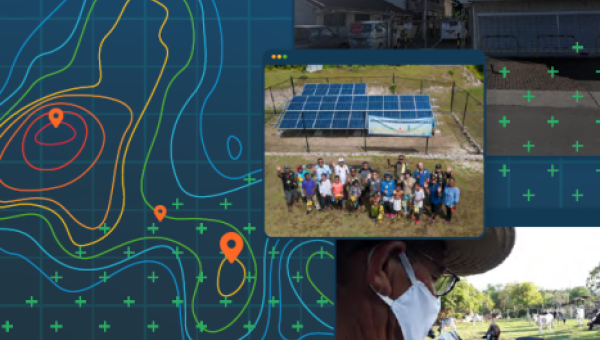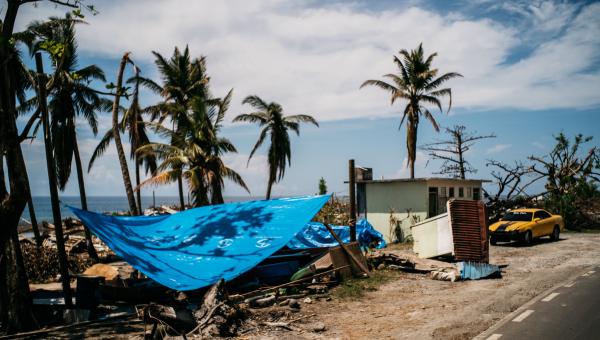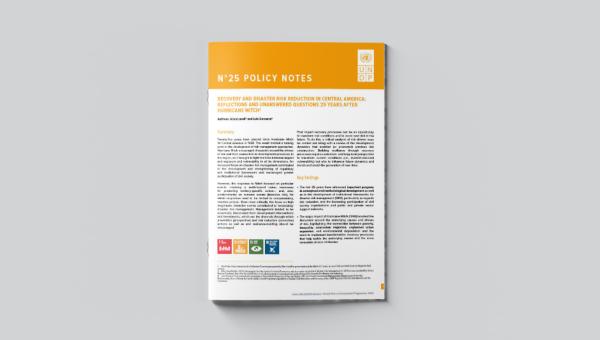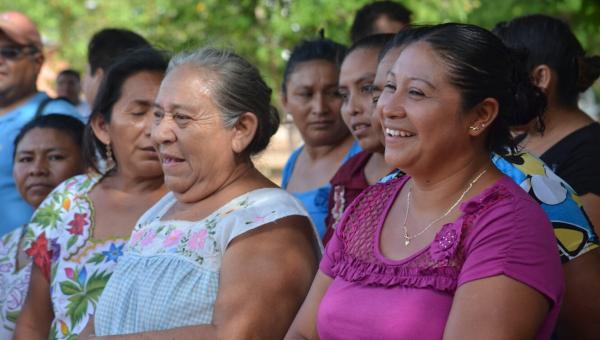UNDP in Latin America and the Caribbean
Gender Equality

Climate Change
Climate change is one of the greatest global challenges in environmental, social, and economic terms. The links between climate change and gender are real and undisputable. Global and regional data and case studies have unequivocally demonstrated that a) there is a causal interrelationship between gender inequalities and climate change where its impacts increase inequalities, and these exacerbate climate change impacts; b) women are disproportionately affected by climate change; c) women are powerful agents of change in different settings.
UNDP continues to provide technical support in Latin America and the Caribbean to scale up good practices and design transformative gender climate agendas and initiatives in the region. Through the Climate Pledge, UNDP has supported countries to 'move from words to action' by designing and implementing climate policies, initiatives and commitments that promote gender equality and women's empowerment in various climate sectors.
Energy
To develop inclusive and gender transformative energy initiatives, it is critical to recognize gender considerations at three levels: a) energy use and access; b) energy decision-making; and c) provision of quality energy services and technology. The energy sector continues to be highly masculinized, with few women in decision-making and limited participation of women in technical work and technological innovation.
Within this framework, UNDP supports gender mainstreaming in all its energy initiatives in order to transform the structures and patterns that perpetuate gender inequalities and increase opportunities for women and their empowerment in the LAC region.
Disaster Risk Management
Gender-neutral disaster risk reduction (DRR) and disaster risk management (DRM) are not effective. The assumption that gender-neutral disaster risk is effective has resulted in ineffective interventions that exacerbate gender inequalities and vulnerabilities and cost lives.
To design and implement gender-responsive DRR, it is necessary to identify and address gender as a cross-cutting issue in all four stages of DRM: mitigation, preparedness, response, and recovery. UNDP is committed to promoting gender-responsive DRM in Latin America and the Caribbean and actively supports policy makers and implementers of DRR policies and initiatives.
Biodiversity
Women and men have a different relationship with natural resources and the environments in which they live and the different ways they contribute to the conservation and sustainable use of natural resources in various ecosystems. Women and men are also affected by environmental changes differently due to existing gender inequalities and dynamics.
UNDP's approach to gender mainstreaming is two-pronged, supporting the empowerment of women and girls through gender-specific interventions while advancing gender equality in the development, planning, implementation and evaluation of all environmental policies and programs.
Highlights
Environment and Gender Training School:
We have an Environment and Gender Training School, where the latest technical knowledge on the subject is exchanged, lessons learned and good practices for project and program implementation are shared, and challenges are reflected upon to ensure that an effective environmentally sustainable transition is both fair and egalitarian.
Green and violet mornings:
The "Green and Violet Mornings" initiative is a series of high-level interviews with 5 Latin American women to highlight their work and contributions to biodiversity conservation and the fight against climate change. The interviews are conducted by UNDP Costa Rica’s Resident Representative and UNDP Gender and Environment Champion for Latin America and the Caribbean, Mr. José Vicente Troya Rodríguez. These interviews address the challenges facing the region in terms of gender and environment, and the opportunities they have to propose gender-responsive environmental initiatives that lead to a real transformation. If you want to know more about the initiative, click here.

 Locations
Locations